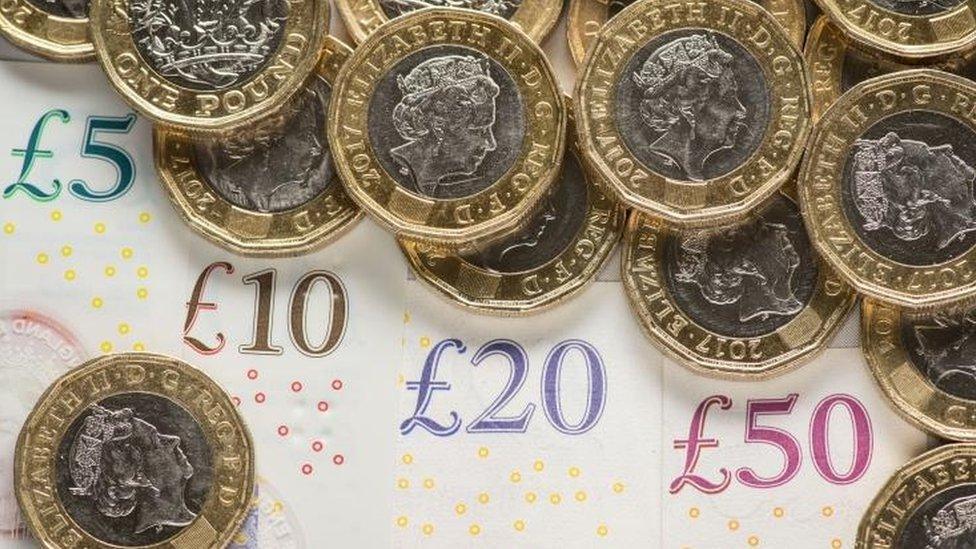Hotels call for 'significant assistance' to survive winter
- Published
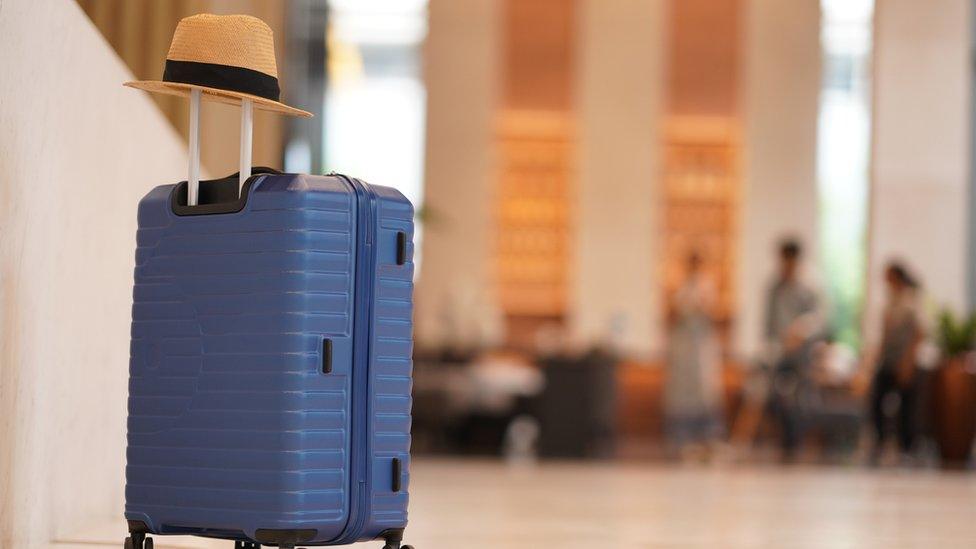
A lack of international visitors and conferences has hit hotel bookings
The hotels sector will need significant assistance to survive an uncertain winter period, an industry body says.
Hotel occupancy rates in Northern Ireland dropped by more than 12% in September compared to the two previous months, according to the latest data.
The performance figures are provided by STR, an independent hotel benchmarking company.
The Northern Ireland Hotels Federation (NIHF) said trading would taper out over the coming months.
It expects average occupancy to fall to 45%.
Janice Gault, chief executive of NIHF, said summer trading was strong but a lack of international visitors and conferences had hit bookings.
"If you consider Northern Ireland's pre-pandemic figures, in September 2019, hotel occupancy was 76.9%, while in 2018 it was 79.3% - both significantly higher than the 2021 level of 65.2%," she said.
"The results highlight the importance of international travel, conferences, and meetings to the hotel industry.
"The obstacles in travelling into Northern Ireland from international destinations along with two differing positions on the island of Ireland have proved to be a real turn-off for visitors.
"Northern Ireland has been removed from tour itineraries for 2021 and there are concerns that this position could continue in the 2022 season."
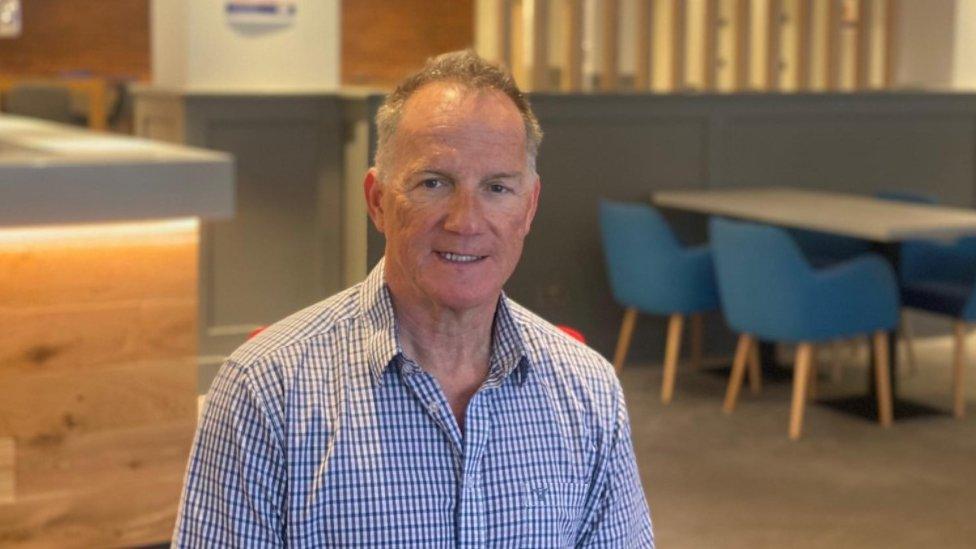
Hotel owner Brendan Duddy fears a quiet winter lies ahead
Londonderry hotelier Brendan Duddy said the winter months could be a "horror story" for the sector.
"It looks like it is going to be extremely quiet," Mr Duddy told BBC Radio Foyle.
Before the pandemic guests would often book months or weeks in advance, he said, now bookings are made just weeks ahead.
He added: "We are booked out this weekend and next weekend, but two weeks ago it looked like it was going to be quiet.
"But I do think that in November, December, January… I don't see that happening as much".
He said there are wider issues - including staff retention and rising energy prices - that are compounding problems for the sector.
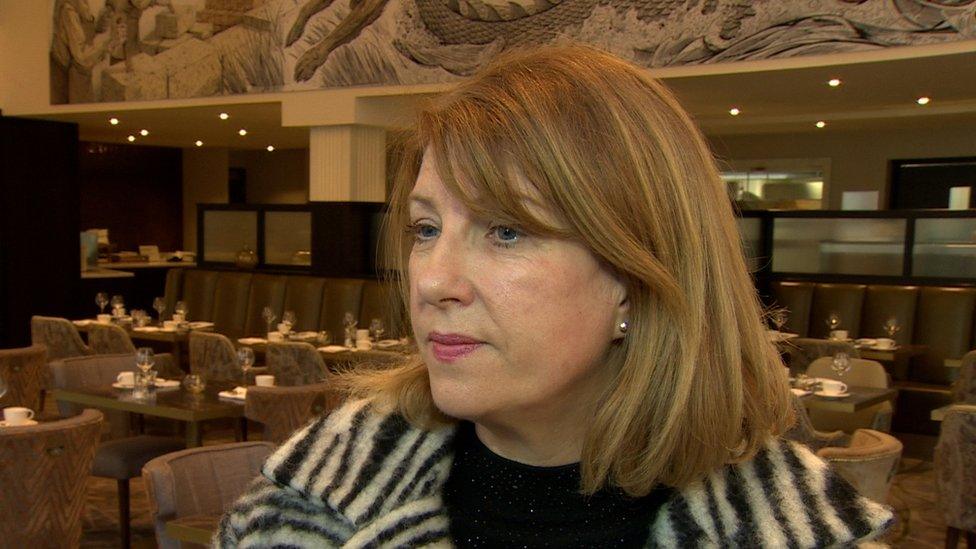
Janice Gault says hotels face an uncertain winter
Ms Gault said it would be difficult to forecast how hotels would perform, but this year had been better than 2020.
"Year-to-date occupancy is 45.7%, however if you look at previous years, trading viewed through the lens of occupancy would have been sitting at more than 70%," she added.
Ms Gault said weekend bookings were strong, but there was uncertainty as the winter trading period approached.
"The likelihood is that 2021 trading will taper out over the coming months, resulting in an average occupancy level of 45%," she said.
"[It has been] a better year than many thought, but one that indicates the sector will still need significant assistance to survive."
Holiday at Home voucher
The NIHF said promotional campaigns and the proposed holiday-at-home voucher scheme will be important initiatives.
An industry group recently called for assurances that the scheme would go ahead to help the tourism sector.
However, Economy Minister Gordon Lyons has cast some doubt on it, saying it was a matter of if, not when it would happen.
In a written answer to Foyle SDLP assembly member Sinead McLaughlin, Mr Lyons said: "The timing and suitability of the proposed scheme is now being considered in the light of the levels of consumer demand experienced over the summer and the impact of the High Street Scheme.
"The High Street Scheme allows consumers to use their Spend Local cards until the end of November.
"Given that research indicates that up to 17% of the Spend Local expenditure could be used for short breaks and daytrips, it is intended that, if it proceeds, the Holiday at Home Voucher Scheme would not run until after the High Street Scheme closes."
- Published17 October 2021
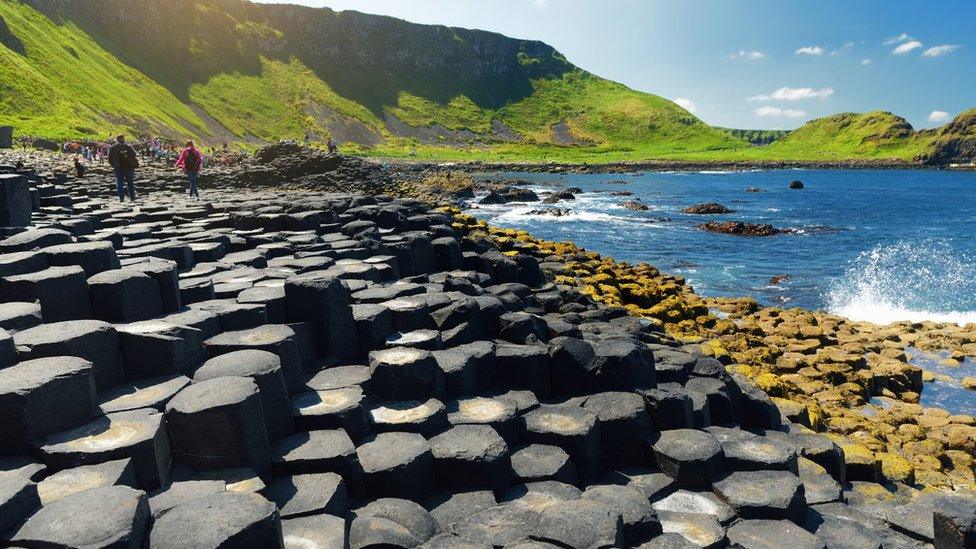
- Published25 February 2021
